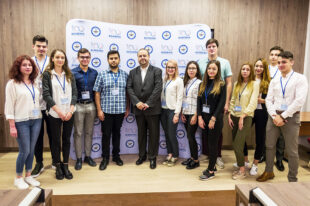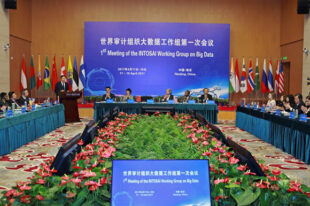Key Adoptions, Endorsements, and Appointments Made at INCOSAI XXIV
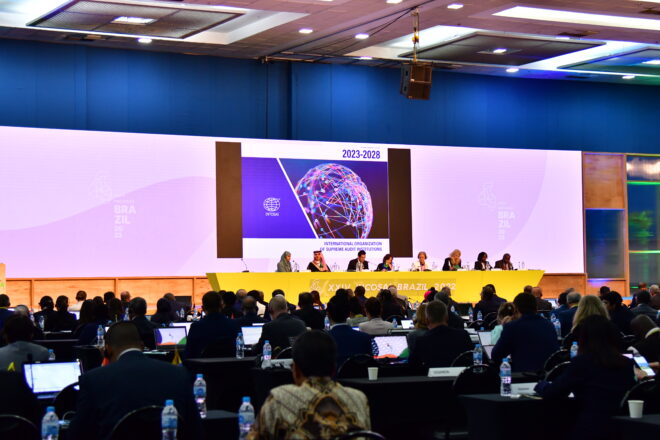
The indicators of a successful INCOSAI include widespread knowledge sharing and discussion, international cooperation and collaboration, and collective decision-making on a number of key items. During INCOSAI and at the preceding 76th INTOSAI Governing Board meeting, the INTOSAI community came together to present, discuss, and come to agreements on adopting the new INTOSAI Strategic plan, the triennial budget, new professional pronouncements, the Rio Declaration, and new appointments of INTOSAI Governing Board members, amongst other key accomplishments.
Adoption of the INTOSAI Strategic Plan 2023-2028 and INTOSAI Budget for 2023-2025
INTOSAI adopted the INTOSAI Strategic Plan 2023–2028, which lays out INTOSAI’s mission, vision, values, organizational priorities, and strategic goals for 2023 through 2028. The plan identifies five key priorities: (1) advocating for and supporting SAI independence; (2) contributing to the achievement of the 2030 Agenda for Sustainable Development; (3) supporting the development of resilience in SAIs; (4) promoting and supporting equality and inclusiveness within the INTOSAI community, and; (5) enhancing strategic partnerships.
The plan emphasizes that INTOSAI will deliver results related to the professional standards for the public sector audit profession, capacity development, knowledge sharing, and good governance. The INTOSAI Task Force on Strategic Planning led development of the plan. The United States Government Accountability Office (GAO) chaired the task force composed of the Secretary General; Goal Chairs and Vice-Chairs; Policy, Finance and Administration Committee members; INTOSAI and Regional Organization Chairs and Secretariats; INTOSAI Development Initiative (IDI); INTOSAI Journal; and the Forum for INTOSAI Professional Pronouncements (FIPP) Chair and Vice-Chair.
In expressing his appreciation for the work of the Strategic Planning task force during his presentation of the plan at INCOSAI, Comptroller General of the United States Gene L. Dodaro said, “The work of the Task Force was guided by a process firmly grounded in consultation and consensus, building on the best practices identified during the first three strategic plans’ development as well as the Beijing Declaration. A vital part of this process included ensuring that all INTOSAI members had an opportunity to provide input and comment on the plan as it was being developed.”
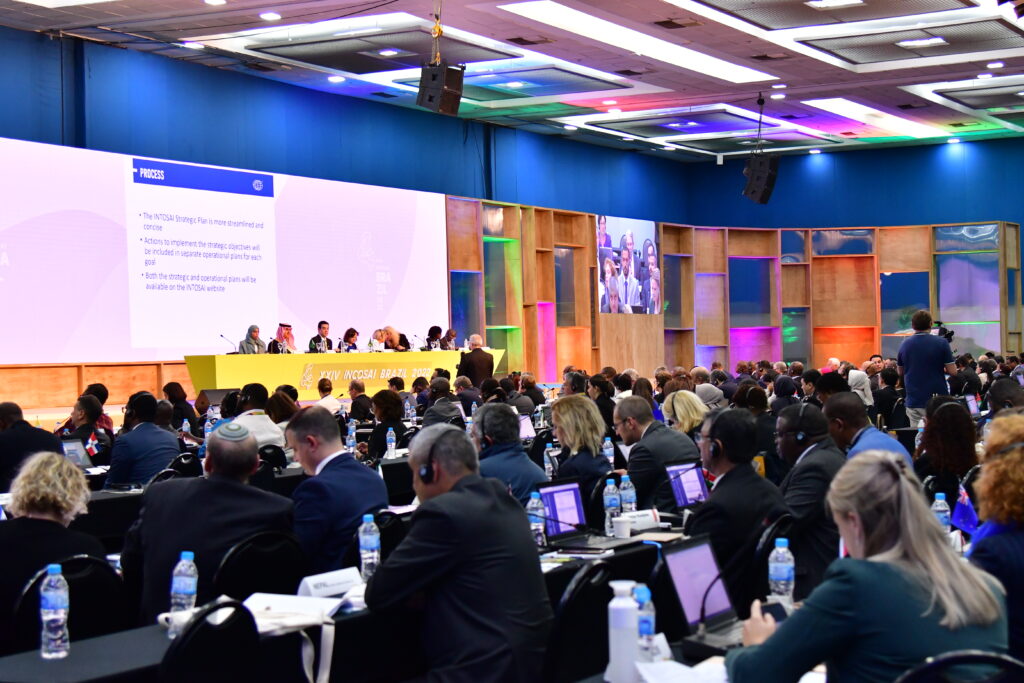
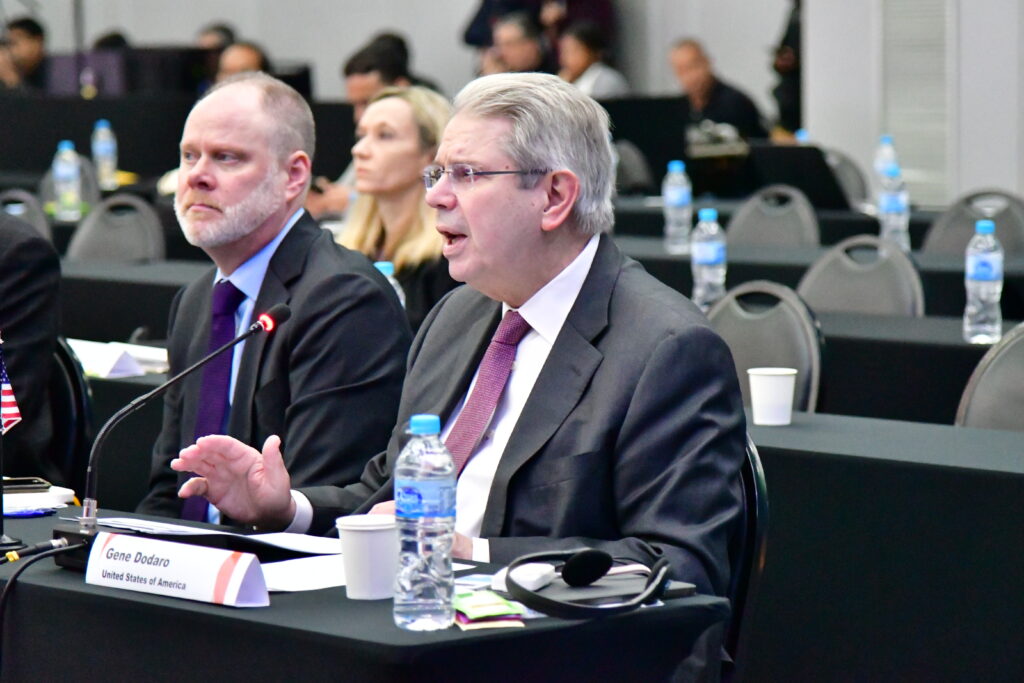
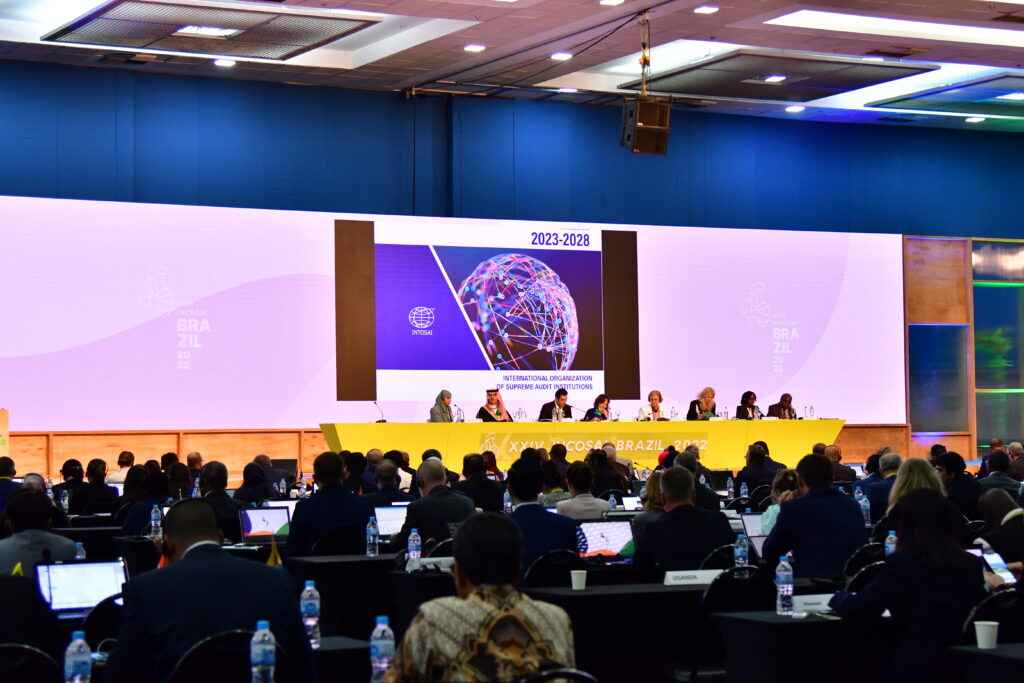
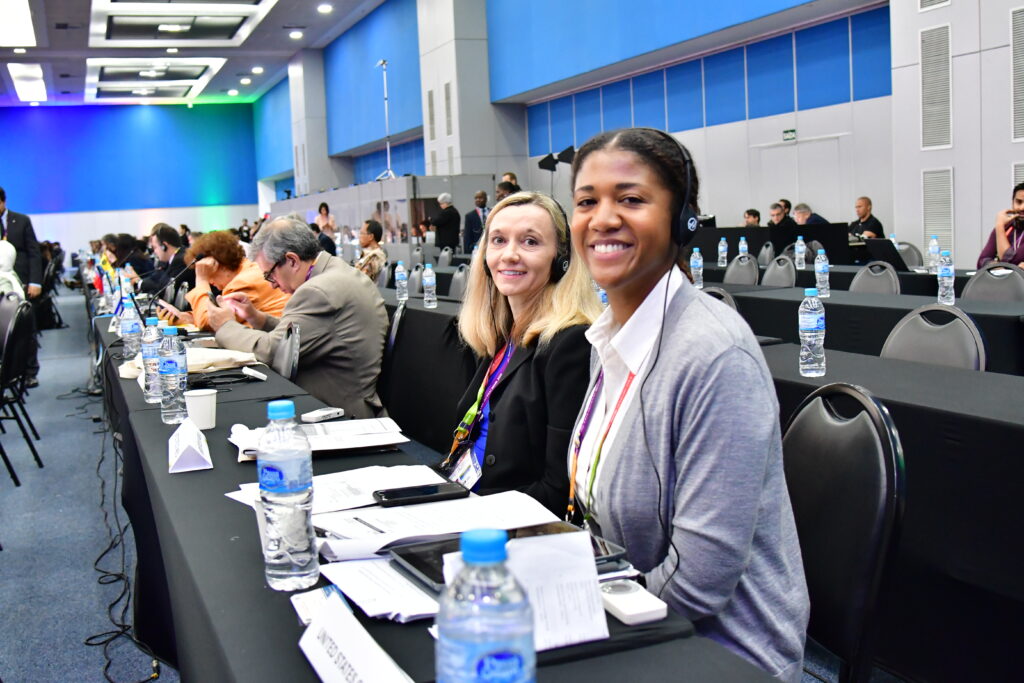
The adoption of the plan will help ensure that INTOSAI continues to meet its mission of contributing effectively to the accountability of the public sector, promoting public transparency and good governance, and fostering the economy, effectiveness and efficiency of government programs for the benefit of all INTOSAI members and the constituencies they serve. The plan reflects the many suggestions and thoughtful contributions received from INTOSAI members and provides a solid foundation for the organization’s continued evolution.
In addition to the Strategic Plan, the INTOSAI budget for the period of 2023-2025 was adopted. The triennial budget for the period is fully balanced, and planned revenue covers the estimated expenditure for INTOSAI’s operating activities. The INTOSAI budget is overseen by the INTOSAI General Secretariat Chief Financial Officer, Herbert Baumgartner.
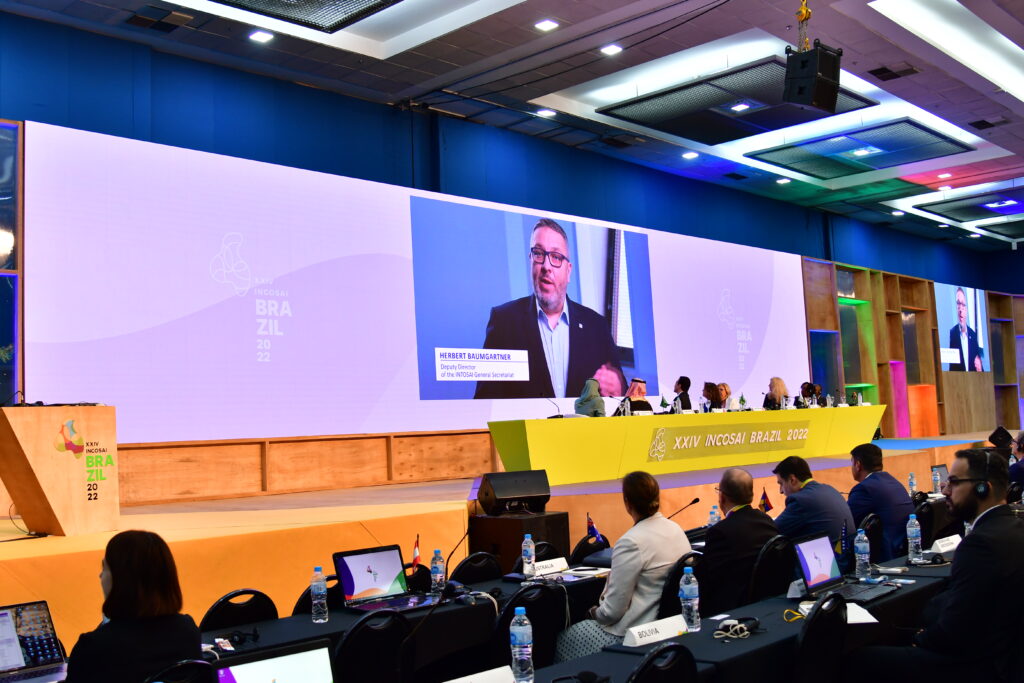
INTOSAI Endorses New and Updated INTOSAI Professional Pronouncements
The INTOSAI Congress approved twelve new or revised professional pronouncements and standards for inclusion in the INTOSAI Framework for Professional Pronouncements (IFPP).
The new and revised pronouncements endorsed include:
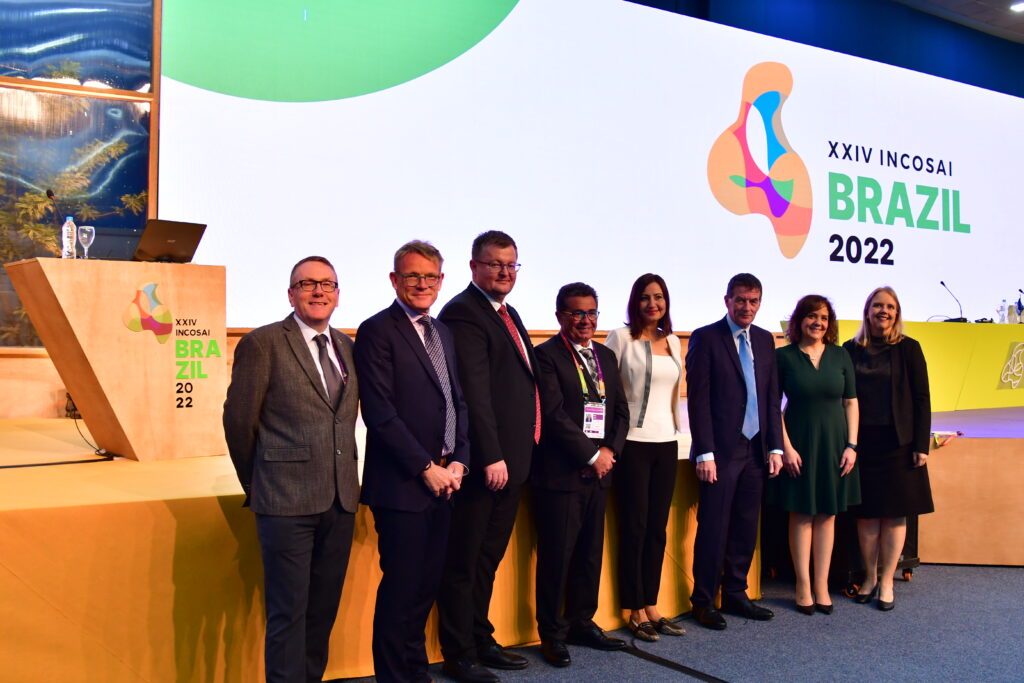
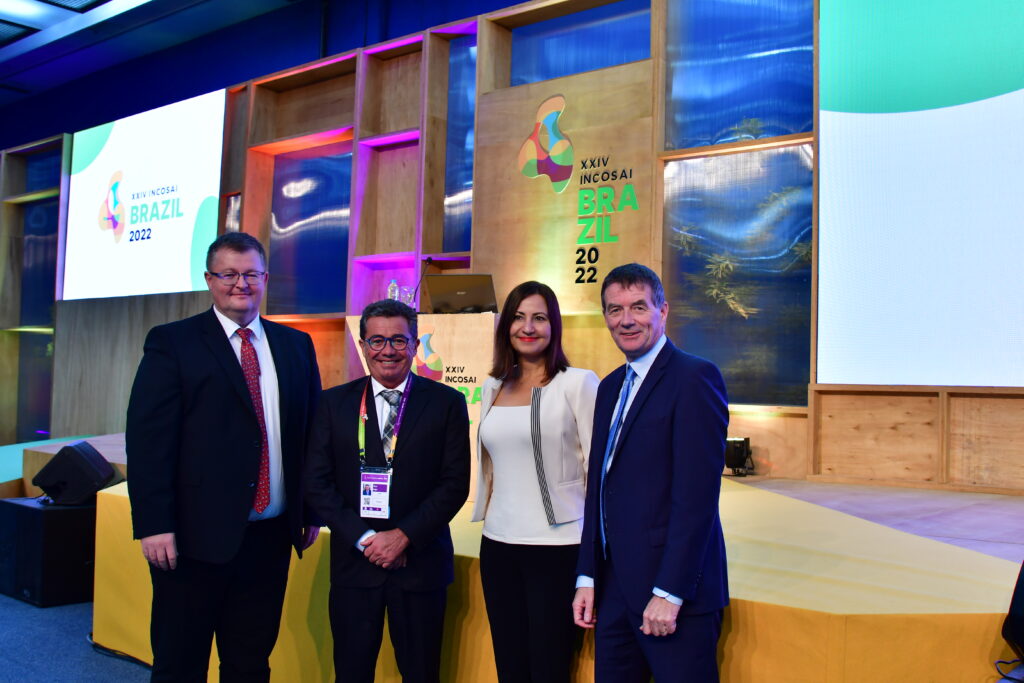
Goal Committee 1 (Professional Standards):
- ISSAI 200: Financial Audit Principles
- ISSAI 2000: Application of the Financial Audit Standards
- GUID 2900: Guidance to the Financial Auditing Standards
- GUID 4900: Guidance on Authorities and Criteria to be Considered while Examining the Regularity and Propriety Aspects in Compliance Audit
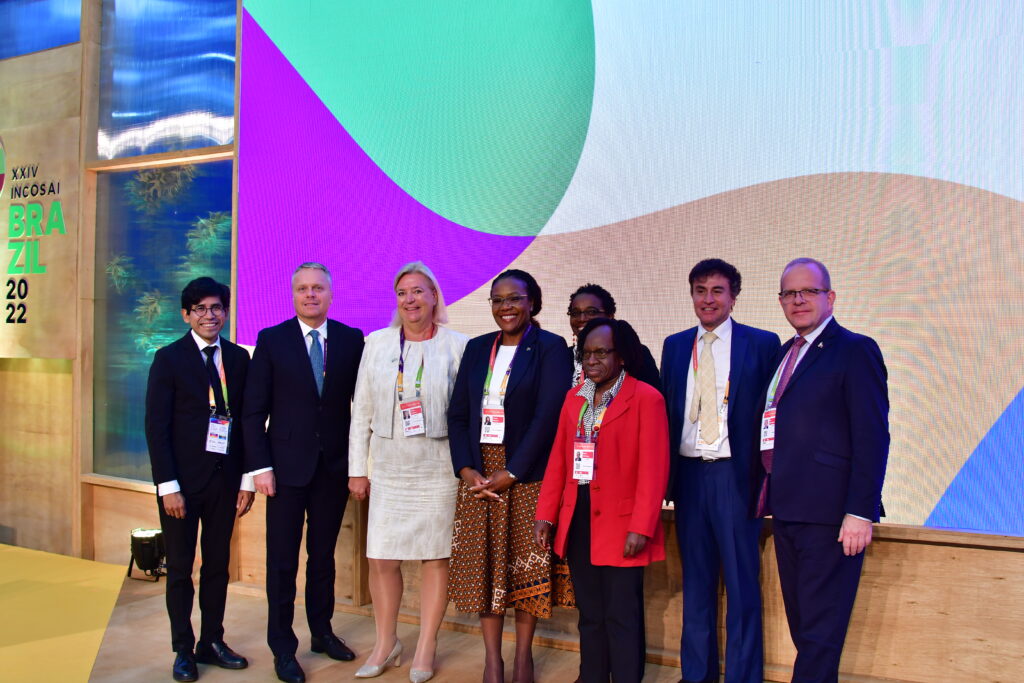
Goal Committee 2 (Capacity Building):
- ISSAI 100 (addition of Article 36 to establish alignment with ISSAI 150)
- ISSAI 150: Auditor Competence
- GUID 1950: Guidance on the Development of Competency Frameworks for Auditors
- GUID 1951: Guidance on the Development of Pathways for Professional Development of Auditors
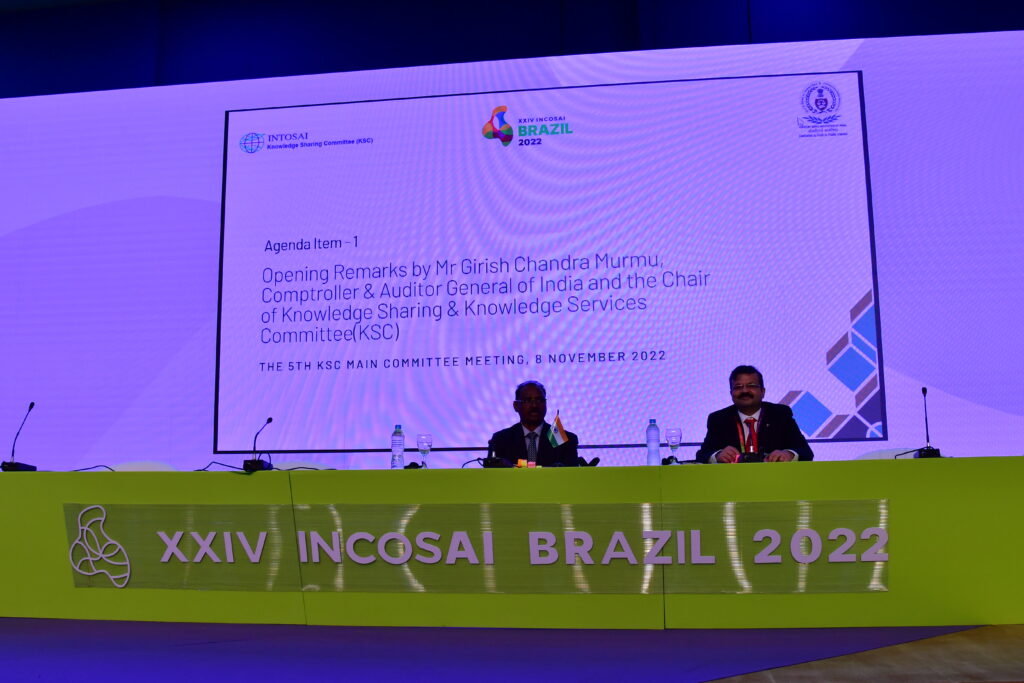
Goal Committee 3 (Knowledge Sharing):
- GUID 5250: Guidance on the Audit of Public Debt
- GUID 5280: Guidance for Audits of Public Procurement
- GUID 5320: Guidance on Performance Audit of Privatization
- GUID 5330: Guidance on Auditing Disaster Management
Additionally, a number of guidance materials, research, papers, training materials, and audit tools developed by INTOSAI working groups were acknowledged at INCOSAI, and will be included in the INTOSAI Community Portal. Working groups that contributed to these INTOSAI Public Goods include the working groups on Big Data, Environmental Auditing, Extractive Industries, Fight Against Corruption and Money Laundering, and IT Audit.
New Appointments to INTOSAI Auditors, INTOSAI’s Governing Board, and Goal Committees
At INCOSAI, the INTOSAI community recognized the work of outgoing members of various organs of INTOSAI, and welcomed new appointments to leadership positions.
The SAIs of Jamaica and Ecuador were nominated and approved as INTOSAI’s auditors for the 2022–2024 financial statements.
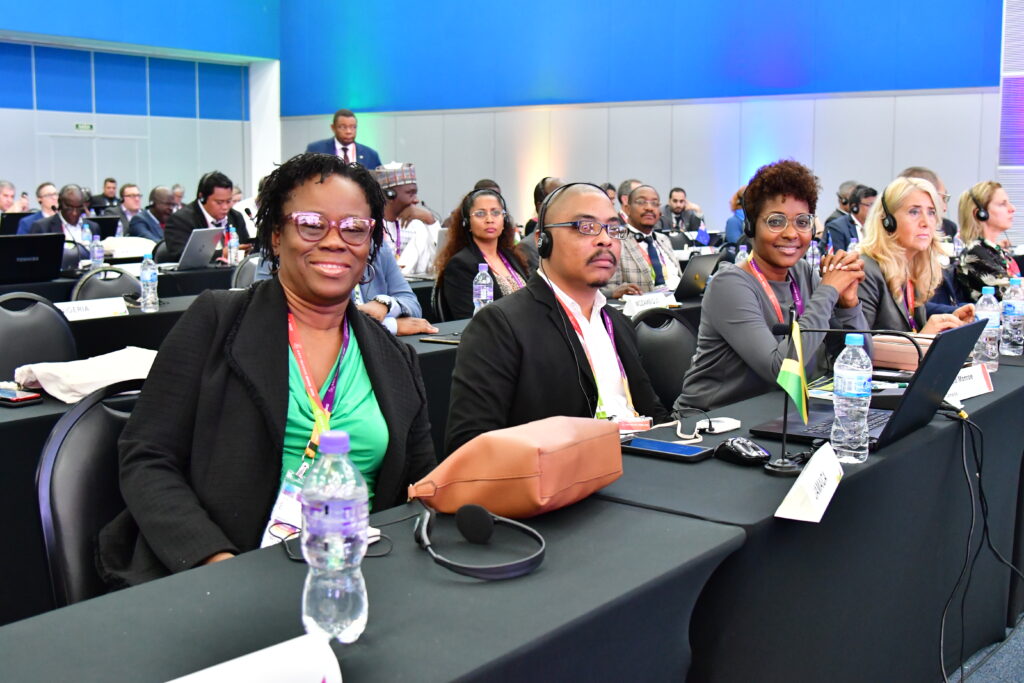
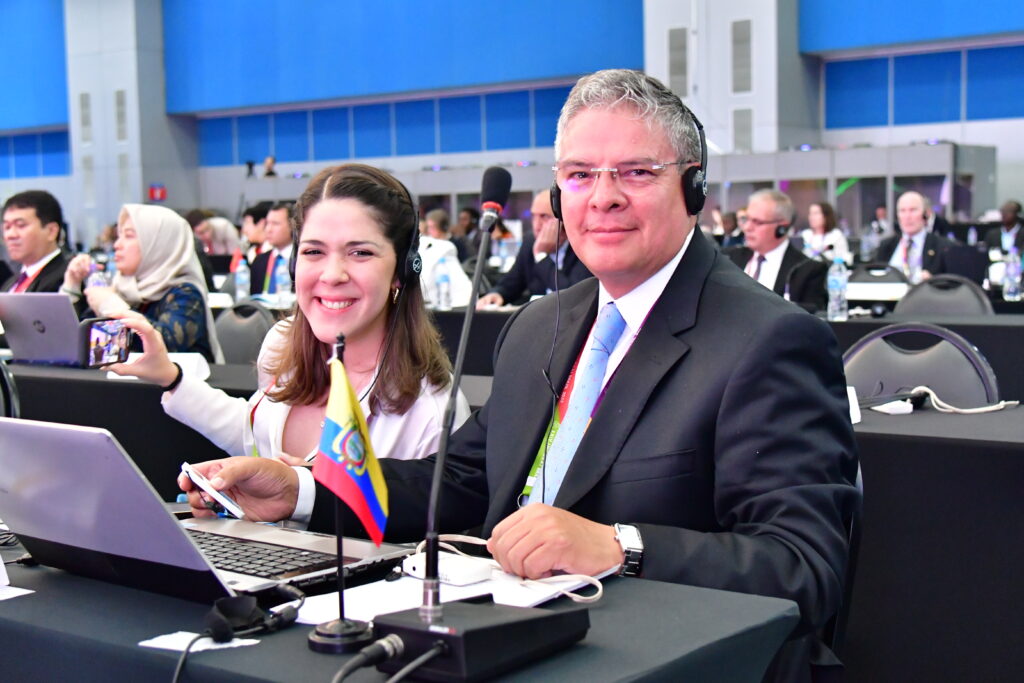
A number of SAIs were appointed and reappointed to serve as members of the INTOSAI Governing Board. SAI Egypt will serve as the first Vice-Chair of the Governing Board, as the SAI will host the next INCOSAI in 2025.
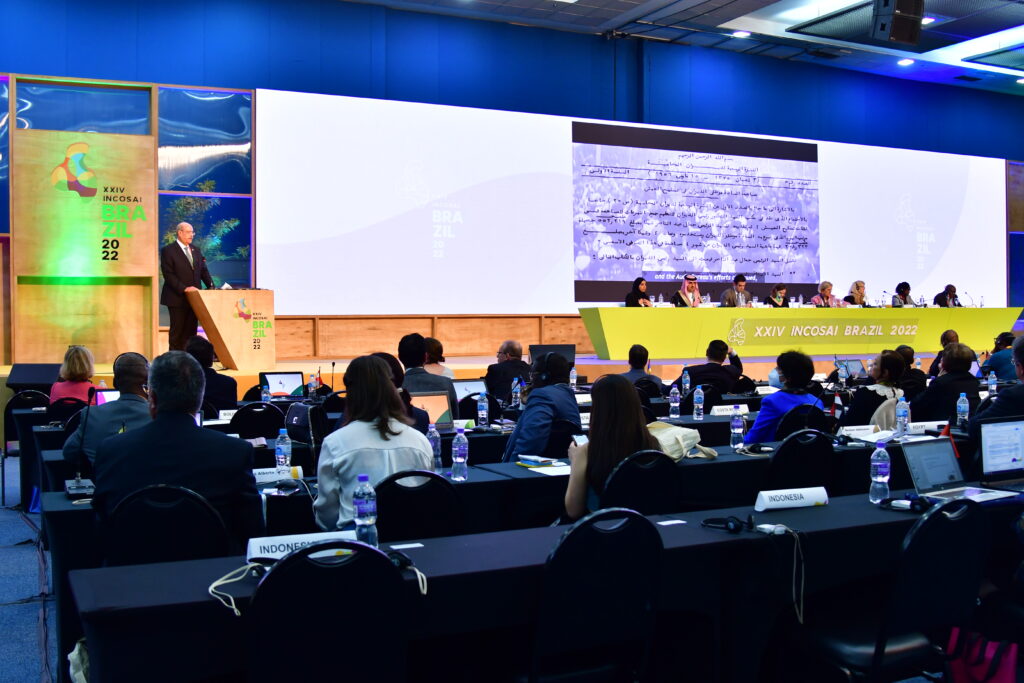
After six years leading the Professional Standards Committee (PSC) as Chair, SAI Brazil passes the Chairmanship to the European Court of Accounts (ECA). SAI Brazil will serve as Vice-Chair of the PSC, the role the ECA previously held.
Many INTOSAI regional organizations also appointed new representatives to the INTOSAI Governing Board. SAI Qatar, representing ARABOSAI; SAI Guyana, representing CAROSAI; SAI Mexico and Peru, representing OLACEFS, and SAI Samoa, representing PASAI, will serve as Governing Board members until 2028. INTOSAI recognizes the contributions that SAIs Saudi Arabia, Bahamas, Argentina, Peru, and Samoa made as outgoing Governing Board members that served from 2016 to 2022.

